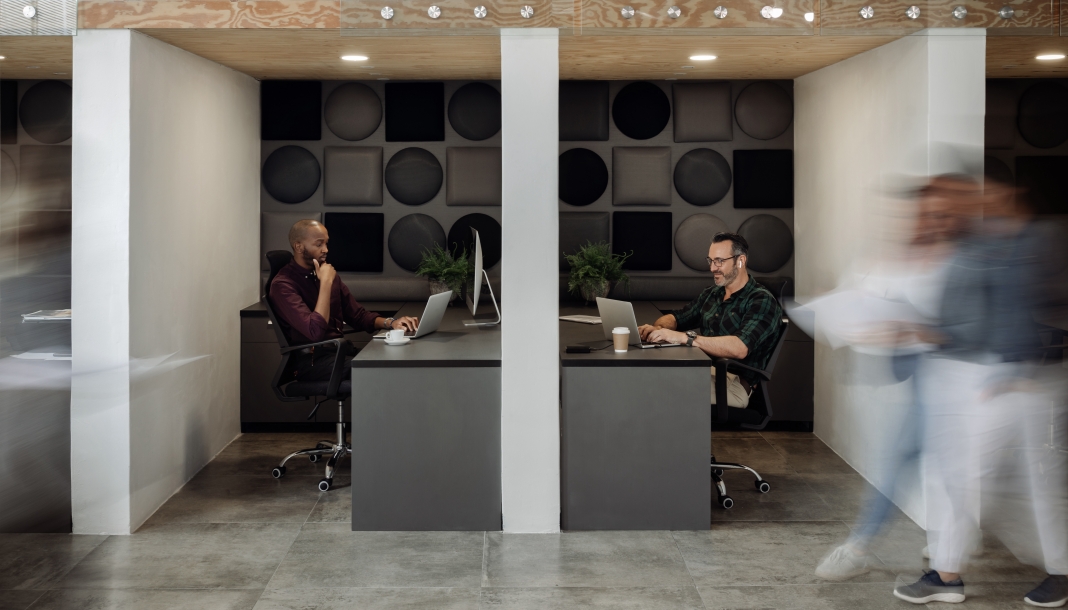Far from being only the domain of start-ups and sole traders, flexible office space is allowing large corporates and professionals to be agile in their businesses too.
As the working world becomes more accustomed to responding quickly to external health, social and economic drivers, shared and flexible office space has emerged as a growing real estate asset class – and one that has huge benefits for occupiers.
With all that has transpired in the global office sector since the pandemic’s unwelcome arrival, one thing has become very clear: how and where teams work is not a binary choice between traditional office space and the home environment.
Steve Rendall, Bayleys national director of office leasing, says the need for safety, access to technology, economic flexibility (including the capacity to scale space to meet demand) and effective personal communication are all playing a part in determining what sort of office space is required by businesses.
“Work-from-home, hub and spoke/core and flex, co-working, shared space, serviced office space – these are all evolving workplace solutions and models that business owners are using to ensure their workplace environment is optimised.
“In New Zealand, large corporates and the public sector are quickly adopting global trends in relation to innovative space solutions, that better suit rapidly changing market environments, budgetary constraints, working styles and staff preferences.”
Bayleys’ latest Coworking Research Report, shows Auckland now has more than 55,000sqm of flexible working space – and a further 19,000sqm-plus in the pipeline.
A recent Bayleys Research survey showed 27 percent of those companies surveyed had more than half their workforce working remotely on a regular basis, which has required the traditional office environment to change in response.
Leading office owners and developers have recognised that while quality “siloed” office space is still a hugely important component of corporate workplace strategy, the inclusion of shared and/or more informal working spaces that add to the overall amenity of office tower and mixed-use precincts is also crucial.
“Institutional landlords and leading private developers are thinking hard about what will draw office tenants and their employees into their building, with flexible access to other more interesting and collaborative spaces within their buildings one way to do so,” explains Rendall.
“They also know that many major corporate occupants don’t have a complete view of what their occupancy requirements look like.
“For example, contractors and consultants are constantly engaged in bidding for infrastructure work, and if the work is awarded to the bidder, there is often an immediate need to upscale affected teams.
“Management can’t easily plan for the increased activity, so having flexible and innovative office space providers within a building can provide an immediate competitive advantage for landlords who are sensitive to these uncertainties.”
Various major participants in the New Zealand market, like Generator, IWG and B:HIVE, along with bespoke operators like Qb Studios, have identified the changing needs of businesses forced to constantly evolve, restructure, and relocate and are meeting these needs by providing adaptable and high quality space.
The benefits of being able to tap into shared space within an established building include:
- Well-designed turn-key (nil CAPEX) solutions that leverage off global experiences
- Increased agility, in that businesses may expand or contract workspace footprints from one month to the next if necessary
- Flexible lease structures, including membership models, multi-choice optionality, and short-term commitments
- The ability to test new geographical markets, whether across town, or in other parts of the country
- Retaining branding and corporate “look and feel” – or simply running with the best design solutions that have been learnt and enhanced off-shore
- Transparent cost structures
- A commitment by flexi-space operators to provide a safe and hygienic environment – compliance is usually taken care of by the provider.




